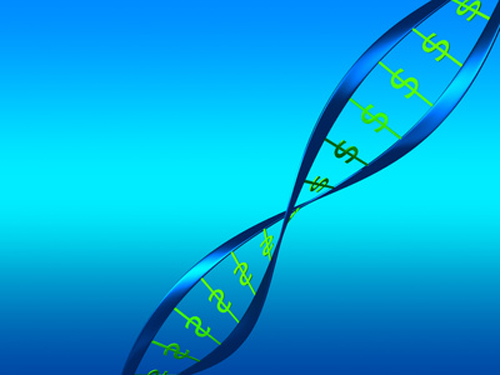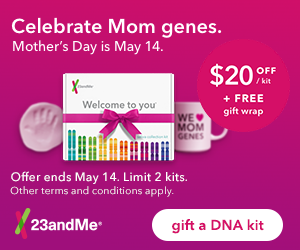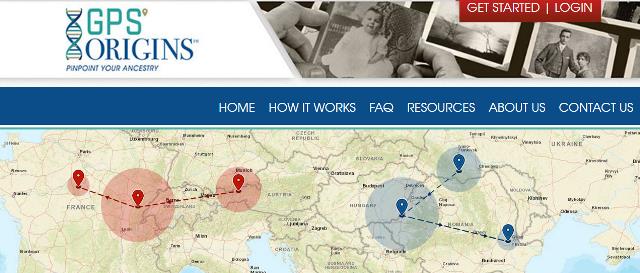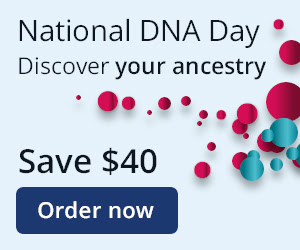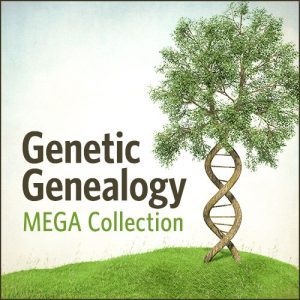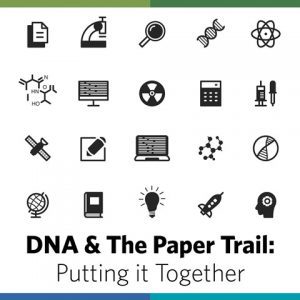2017 DNA Testing Company Ratings and FAQ
Vicki’s note – This is an article that I modified from the Internet from this site – https://www.top10bestdnatesting.com/. I don’t know much about this rating organization, so take their rankings with a grain of salt. Their analysis of DNA testing and company features is thorough and answers a lot of FAQ frequently asked questions about DNA.
I am not familiar with some of the testing companies; new ones are added every year. My experience is that Ancestry.com is probably the most popular, and so should have the most DNA test takers. This increases the ability to see more ethnic fine divisions and findings. The results are compared to the typical DNA for most of the people in a particular population area.
All of them have sales, usually at holidays. You can click on each of the online links below to find out more about pricing, etc.
I added 23andMe, as it is highly rated; and is a DNA testing company that does medical/health DNA tests, as well as Genealogy DNA tests. There are several other adequate DNA testing companies that are not listed here as part of the ranking, such as FTDNA Family Tree DNA.
You also may want to be aware of the different company’s country of origin.
Hint – if you use a DNA testing company that uses the cheek swab method – be sure and “chew” the inside of your cheek before taking the sample. This allows maximum amount of skin DNA cells to get an accurate test sample.
Most of the on-line sites have very interesting stories of actual cases where clients found family members, etc. Some have a BLOG, news releases, and videos of case studies.

2017 Top DNA Tests
Votes (7833)
Get results in 4-6 weeks
DNA matches in huge family tree database
Outstanding 9.8
Votes (1359)
$20 off per kit
5x more ethnic regions
Excellent 9.5
Votes (2194)
Excellent 9.2
Votes (275)
GPS Origins DNA tests revolutionize the DNA testing industry. Since 1995…Read Review
Paternal and maternal lineages
Very Good 8.9
Votes (557)
Diet, exercise, supplementation, and ancestry personalized to your DNA …Read Review
$99 for health + ancestry report
Receive results in 4-6 weeks
Very Good 8.7
“Our Mission – To help people access, understand and benefit from the human genome.”
What is DNA Testing?
DNA testing examines the genetic code that’s carried in every person’s DNA. The code can be found in the cells of any human material, from a drop of saliva to a smear of blood or a strand of hair.
How Does DNA Testing Work?
DNA testing works by taking a sample of cells from the person who’s undergoing the test. Scientists isolate the DNA code that is at the heart of every single cell and carries the information which determines all of your physical characteristics, from your hair color and height to your chances of developing certain conditions.
How Do I Use the Kit?
If you use a home DNA testing kit, you’ll find all the instructions included. Usually, you’ll be sent a sterile tube to collect your saliva sample. It can be awkward to get enough spit for the test purposes. Some companies send a cheek swab that you rub against the inside of your cheek to get a sample of cells from there, instead.
Once you’ve collected your DNA sample, you’ll seal it into the sterile package and use the included mailing package to send it back to the company. It usually takes a few weeks to get the results, but the timeframe varies; it can be anything from 4 to 12 weeks.
When your results are ready, you’ll typically get an email inviting you to view the results online. Ancestry DNA companies have a dashboard that lets you explore your results.
The Top 3 DNA Testing Kit Providers
1.MyHeritage DNA is a huge service that supports genealogists as well as providing DNA tests. It offers advanced family history tools and has a very strong online genealogical community to help you make the most of your results.
Best for: looking for lost relatives
Results in: 4-6 weeks
Test type: cheek swab
Pros Cons
Sync your results with family history data
Strong privacy policy
Only offers autosomal DNA testing
Your details are only stored for 25 years
- Ancestry.com
Best for: building family trees
Results in: 6-8 weeks
Test type: saliva test
Ancestry.com is a well-established DNA testing company with one of the biggest databases of users, at around 6 million people, which gives it an edge when it comes to matching relatives.
Pros Cons
Largest database of users
Stores your DNA information forever
Easy-to-use dashboard
No chromosomal browser on offer
Only offers autosomal DNA testing
- LivingDNA
Best for: biogeographical ancestry results
Results in: up to 12 weeks
Test type: cheek swab
LivingDNA is a good choice for anyone who wants reliable information about family origins from the British Isles. By offering all 3 types of DNA tests, it offers an advanced and scientific approach to DNA ancestry testing that promises to deliver more reliable and detailed results.
Pros Cons
Offers autosomal, Y-DNA, and mtDNA testing
Free test updates if results change
No chromosomal browser
No cousin matching service
Who Needs DNA Testing?
Potentially, everyone could need DNA testing at some point. It can be used to check for genetic disorders or inherited health conditions, paternity testing, or ancestry testing to learn more about your origins and search for family members. DNA testing has been used by historians and archaeologists to learn more about skeletons found at historic sites. For example, when the body of King Richard II was dug up in a modern parking lot, his identity was finally confirmed after DNA tests with some of his modern-day descendants.
What Are the Different Types of DNA Tests?
Paternity tests are used to confirm who is the father of a baby, child, or adult.
Genealogy or ancestry tests are used by genealogists to determine ancestral ethnicity and relationships.
Gene therapy DNA testing is most commonly used for parents before they try to conceive or for fetuses to check for inheritable genetic conditions or if an embryo is carrying any birth defects.
Forensic DNA tests are used by police at crime scenes in order to identify victims or find criminals after certain crimes.
How to Choose DNA Testing
Here are the key considerations to look for when you choose a DNA testing company or kit.
Type of Test
If you want a DNA test in order to learn more about your family and your origins, you have a few options. An autosomal DNA test checks only 22 out of the 23 pairs of chromosomes and can be used to compare DNA from both males and females, so it’s best for finding a range of living relatives. It gets less reliable the further back you go because of autosomal DNA changes every generation, so it’s only good for identifying up to third or sometimes fourth cousins and can only give reliable information back to your great-great-grandparents.
A mitochondrial DNA (mtDNA) test checks the tiny mitochondrial strands inside every cell. Both males and female inherit these mitochondria from their maternal line. It can be extended much further back in time because it doesn’t change quickly. It gives very precise details about your ancestors and distant cousins – even your 48th cousin! – but only if they lie on your maternal line. It’s good for proving you come from a particular region, ethnicity, or family group but not for finding relatives.
Y-DNA testing examines only the genetic information in the Y-chromosome, which is only found in males. It also does not change quickly, so like mtDNA, Y-DNA testing is good for proving relationship to a common ancestor or checking relationship with another individual, but it only works along the male or paternal line. This also means that only men can do a Y-DNA test, although women could ask a close male relative to take the Y-DNA test and then share the results.
Pricing
The price of the DNA test varies between different companies as well as depending on the type of test you take. mtDNA tests are the most expensive type of DNA testing, while autosomal DNA tests are the lowest cost and Y-DNA tests come in somewhere between the two. Although the tests are more or less the same, there’s a huge fluctuation in price between different companies so do compare prices before you buy. Some companies, like LivingDNA, offer a package of all 3 tests for a discount.
Ease of Use
Most DNA testing kits are pretty straightforward, but some elderly or weak individuals can find spit tests awkward to use. In those cases, companies that offer a cheek swab for taking samples instead of needing a saliva sample could be easier.
Reports
Not every company offers the same range of reports. Very few genealogical DNA testing companies will include health and wellness reports. Most companies provide ancestral reports, which break down your family heritage, ethnicity, and which region of the world you hail from, although some are more detailed than others. Some also provide a chromosomal browser which lets you compare your genetic profile with that of others from around the world. You can also find cousin matching reports, which let you know if you have any matches with other people registered with the same service.
Test Accuracy
The type of test you choose affects the accuracy since autosomal DNA tests are less accurate the further back you go but mtDNA and Y-DNA tests remain reliable for dozens of generations. The biggest DNA testing companies such as Ancestry.com, MyHeritage, and LivingDNA are all pretty equally accurate in their test results. However, all companies warn that you shouldn’t use home DNA tests for detailed and critical genetic information like the risk of genetic disorders or of developing cancer.
Privacy
With the rise of hackers and cyber thieves, privacy is a big concern for DNA testing. Check that the company you choose uses industry-standard safeguards and firewalls to protect your details. You should also check that the company you choose has a strong privacy policy and won’t sell your details to medical research facilities or commercial partners without your agreement. It’s important to ask what exactly the company does with your details.
Special Features
As well as these considerations, there are a few extra features that are offered by some DNA testing companies. Some companies store your data indefinitely which means you can discover new family history information 50 years down the line. Others only store it for a certain number of years.
Another feature is the size of the database. The bigger the database of users, the better your chances of finding a match.
Some companies also permit you to upload raw genealogical data to their database so you can see if you have any matches without taking a test again.







